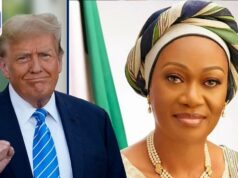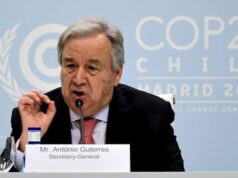The BBC apologised on Monday for editing a speech that gave the impression US President Donald Trump made “a direct call for violent action” just before the 2021 US Capitol assault, calling it “an error of judgment”.
A growing furore around the issue prompted the dramatic resignations on Sunday of two of the broadcaster’s top brass and celebrations — as well as a rebuke — from the White House.
It has also reopened debate in the UK over the BBC, cherished by many but which has faced long-standing accusations of institutional bias, regularly from those on the political right and, more recently, from those on the left as well.
In a letter to MPs on Monday, BBC chairman Samir Shah said it accepted that the way Trump’s speech was edited in a flagship documentary “did give the impression of a direct call for violent action”.
“The BBC would like to apologise for that error of judgment,” he added, vowing to reform oversight at the publicly funded broadcaster, among other things.
It came hours after director general Tim Davie and BBC News CEO Deborah Turness resigned amid the escalating backlash over the issue.
Trump promptly celebrated, accusing BBC journalists of being “corrupt” and “dishonest”.
His press secretary called the broadcaster “100-per cent fake news”.
But Prime Minister Keir Starmer’s spokesman pushed back on Monday.
“The BBC has a vital role in an age of disinformation,” he said, although he stressed, “It’s important that the BBC acts swiftly to maintain trust and correct mistakes quickly when they occur.”
‘Failures’
The controversy comes as the government prepares to begin a politically sensitive review of the BBC’s charter, which outlines the corporation’s governance and funding framework.
The current charter ends in 2027.
The broadcaster, which has faced a prolonged period of stretched finances and cut hundreds of jobs in recent years, is funded by a licence fee paid by anyone who watches live TV in the UK.




